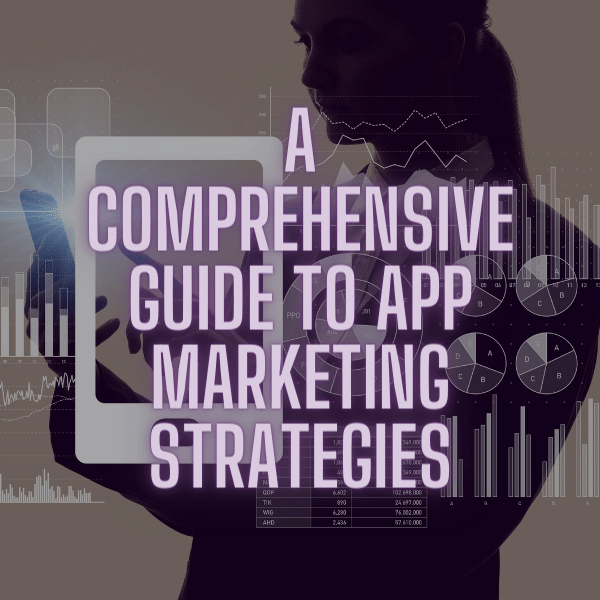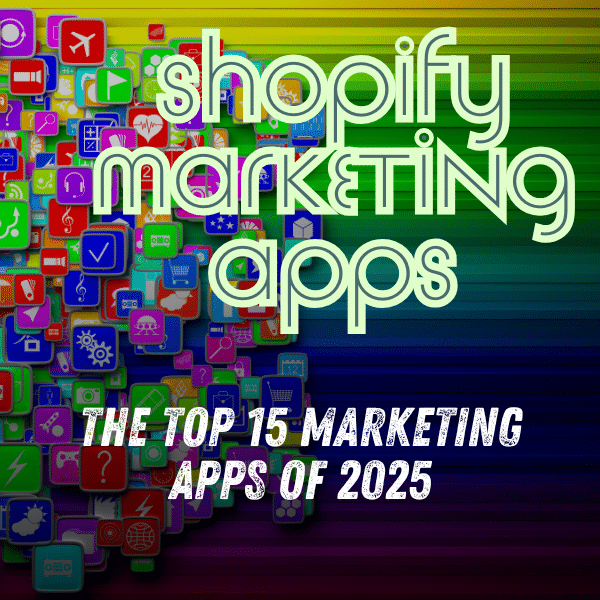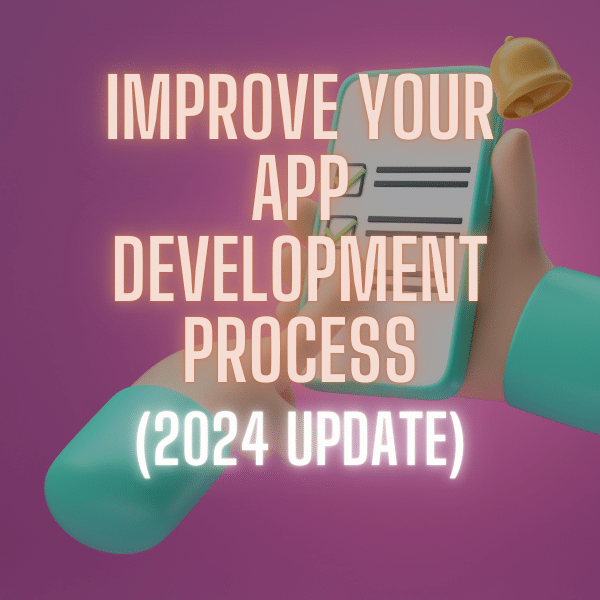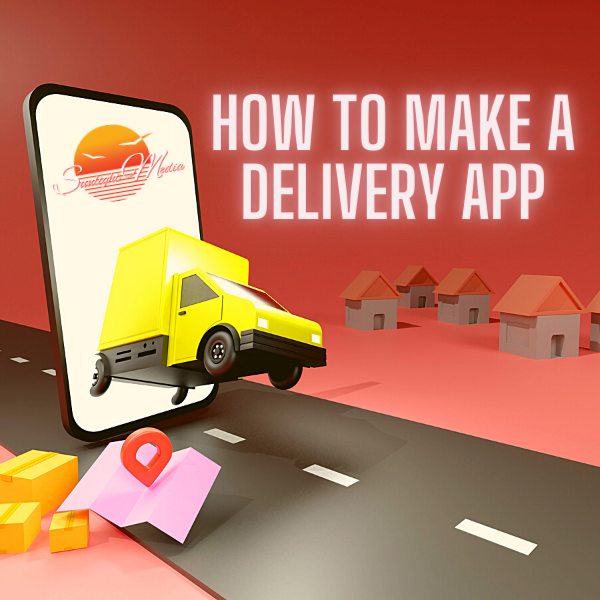Why you can trust Sunlight Media
- Expertise and Experience:Our content is crafted by seasoned professionals with extensive experience in digital marketing, ensuring you receive accurate and actionable advice.
- Unbiased Information:We provide impartial insights and recommendations based solely on what's best for your business, without any hidden agendas or promotions.
- Thorough Research:Our articles are backed by comprehensive research and the latest industry trends, ensuring you stay informed with reliable and up-to-date information.
- Transparency and Honesty:We believe in complete transparency. We disclose our sources, methodologies, and any potential conflicts of interest, so you can trust the integrity of our content.
- Continuous Improvement:We constantly review and update our content to reflect the latest developments in digital marketing, so you always have access to the most current and relevant information.

In the dynamic world of ecommerce, especially within Shopify development, selecting the right Shopify development agency in California is crucial. A pivotal factor in this decision is their expertise in mobile app marketing services, an emerging trend in the ecommerce realm. With the rise in mobile usage, utilizing mobile app marketing tips and tricks has become essential.
Amidst a sea of businesses competing for online attention, mastering the art of engaging customers and promoting your Shopify site through app growth strategy is essential for differentiation. With the help of a robust mobile app marketing platform and app promotion service, you can gain a competitive advantage. This guide provides a detailed blueprint on how to traverse the complex domain of Shopify marketing, ensuring your business stays ahead with the top Shopify website company in California.
Short Summary:
- – Identify your target audience through in-depth research and customer profiling.
- – Leverage competitor analysis for a competitive edge.
- – Formulate a solid mobile app growth strategy, incorporating the latest mobile app marketing tips and tricks.
- – Evaluate strategy success and adjust based on performance metrics.
- – Mobilize your sales team for effective outreach using a trusted mobile app marketing platform.
Understanding Your Target Audience
Grasping your target market is foundational for any successful ecommerce plan, especially when collaborating with Shopify experts in California adept in mobile app marketing services. Without this understanding, crafting marketing campaigns, especially a go-to-market strategy for consumer mobile apps, becomes a challenge.
Hence, market research and customer profiling are indispensable for a successful Shopify marketing strategy. These insights enable you to customize your marketing efforts, including mobile app growth strategy, leading to enhanced customer engagement and loyalty.
Market Research Techniques
To define your target audience and craft a comprehensive mobile app marketing strategy, effective market research techniques are vital. Tools like online surveys, social media analytics, and platforms like Dait.ai, Statista, SensorTower, and Google Trends provide invaluable insights. Leveraging a reliable mobile app marketing platform and app promotion service can further amplify your reach. Moreover, competitor analysis in mobile app marketing services offers a wider view of the ecommerce scene, highlighting opportunities to make your Shopify site unique using innovative app marketing tips and tricks.
Identifying User Profiles
Understanding customer profiles is essential for personalized marketing and resonating with your target audience. Profiles vary based on age, location, interests, etc. Use market research tools like surveys and focus groups to gain audience insights. With this knowledge and the support of a Shopify agency in California, you can create campaigns tailored to each demographic, boosting customer engagement and business growth.
Analyzing Competitors
In the competitive realm of Shopify and consumer mobile apps, understanding competitors is a game-changer. Partnering with a leading Shopify company in California and a dedicated app marketing company allows for in-depth competitor research, uncovering their business models, customer profiles, and mobile app marketing strategies. Tools like SensorTower and App Radar are invaluable for gauging competitor performance, refining your mobile application marketing plan and go-to-market strategy.
Assessing Competitor Performance
Evaluating competitors means analyzing their products, sales, and go-to-market strategies. This helps identify their strengths and areas of improvement. By comparing your performance with competitors, a Shopify web design agency in California can pinpoint growth areas, especially in mobile app marketing services. Harnessing the insights from a proficient app marketing company can further enhance this evaluation, ensuring your marketing campaigns are both innovative and effective.
SWOT Analysis
Conducted by a premier Shopify web design company in California, a SWOT analysis evaluates the Strengths, Weaknesses, Opportunities, and Threats of your Shopify store and its app growth strategy. Incorporating insights from your mobile application marketing plan, this analysis refines your marketing approach, ensuring adaptability to market changes in the mobile app world, keeping your Shopify store relevant and competitive.
Building Your Online Presence
Establishing a robust online presence is crucial for connecting with customers and delivering comprehensive information about your Shopify store. By creating a dedicated website or landing page and setting up social media accounts with consistent branding, you can effectively engage potential customers and highlight your store’s features, including those within your mobile apps.
Working with a Shopify web design company in California and a specialized mobile app marketing agency allows you to leverage search engine optimization (SEO) to enhance visibility and boost organic traffic. Additionally, collaborating with an app marketing agency ensures that your mobile app’s features are prominently highlighted and optimized for your target audience. With mobile app marketing and app promotion services forming an integral part of your strategy, you can leave a lasting impression on your target audience, building the groundwork for long-term success.
App Website and Landing Page
Having a website or landing page for your Shopify store and mobile apps, created by Shopify development companies and supported by an app marketing agency, is vital for offering customers a thorough understanding of its features, benefits, and functionality. Optimizing your store description and employing SEO strategies can enhance your visibility in search results and draw in new customers. Utilizing app promotion services and app marketing tips for your utility apps will also enhance the user experience.
Moreover, a well-designed and engaging website serves as a center for support, communication, and customer feedback, thereby improving the overall customer experience and fostering enduring customer loyalty.
Beyond marketing, ensuring efficient order fulfillment is crucial for customer satisfaction and retention. Partnering with an eCommerce 3PL fulfillment provider can help businesses manage inventory, shipping, and returns more effectively. This allows companies to focus on core activities like product development and marketing, while the 3PL handles logistics. Efficient fulfillment processes contribute to positive customer experiences, which can lead to better app reviews and increased user engagement. Integrating a reliable fulfillment strategy is, therefore, an essential component of a comprehensive app marketing plan.
Social Media Strategy
Social media platforms like Twitter, Instagram, YouTube, TikTok, and Pinterest are potent tools for Shopify marketing and promoting your mobile apps. Teaming up with an app marketing agency can amplify your social media outreach. These platforms allow you to connect with your target audience and engage them in a more personal way. By maintaining consistent branding across your social media accounts, you can create a unified online presence that effectively showcases your Shopify store and its features.
Regularly posting compelling content and interacting with your audience, with the guidance of app promotion services, can help you build a loyal following, drive customer engagement, and ultimately, increase Shopify sales.
Optimizing Your App Store Listing
An optimized app store listing is critical for increasing visibility and attracting potential users. By leveraging relevant keywords, an attention-grabbing title, a persuasive description, eye-catching screenshots, a memorable icon, an appropriate publisher name, and a suitable category, you can improve your app’s visibility in the app store
Keyword Optimization
Effective keyword optimization plays a vital role in ensuring your app is visible to the right audience. By conducting comprehensive keyword research and selecting relevant keywords that your users are likely to search for, you can improve your app’s ranking in the app store.
Additionally, incorporating these keywords into your app’s title, subtitle, and description can further enhance your app’s visibility and attract more users to download your app. Remember to strike a balance between using keywords effectively and avoiding keyword stuffing, which can negatively impact your app’s ranking.
Visual Elements
Visual elements, such as images and alt tags, play a significant role in app store optimization. By utilizing descriptive filenames and alt tags, you can ensure search engines understand the content of your app store listing more effectively, improving your ranking in search results.
Additionally, high-quality screenshots, an eye-catching icon, and an engaging video preview can help showcase your app’s features and persuade potential users to download your app. Investing in compelling visual elements can greatly enhance the overall appeal of your app store listing and contribute to your app’s success.
Promoting Your App Through Various Channels
To effectively market your app, it’s essential to utilize a variety of promotional channels within your mobile app marketing strategy, such as influencer marketing, paid advertising campaigns, and referral programs. Each channel offers unique advantages and can help you reach different segments of your target audience. Furthermore, leveraging the visibility of app stores in your marketing efforts can significantly augment your app’s reach.
By implementing a diverse marketing strategy, you can increase your app’s visibility on various platforms including app stores, drive user engagement, and ultimately, boost app downloads.
Influencer Marketing
Influencer marketing, a crucial component of a holistic mobile app marketing strategy, involves partnering with content creators who have a significant and engaged following in your app’s niche. This type of marketing can introduce new users to your app’s features and provide a compelling incentive to download your app based on their affinity for the influencer.
To ensure a successful influencer marketing campaign for app promotion, it’s crucial to identify the right influencers, those who genuinely share an interest in your app’s subject matter, and use an effective campaign management tool to streamline communication, collaboration, and financial rewards.
Paid Advertising Campaigns
Paid advertising campaigns, such as search engine marketing (SEM), display advertising, and social media advertising, can provide a reliable source of traffic and help increase brand recognition, lead generation, and conversion optimization. They also play a pivotal role in promoting your app on various app stores. However, paid advertising can be costly, and it’s essential to allocate a budget and carefully plan your campaigns to ensure you’re getting the best return on investment.
By researching and implementing best practices for paid advertising within your mobile app marketing strategy, you can effectively reach your target audience and drive app downloads.
Referral Programs
Referral programs offer an excellent opportunity to leverage word-of-mouth marketing by providing tangible incentives to existing users for promoting your app to their contacts. This type of marketing can increase your app’s visibility, user engagement, and loyalty while also helping you acquire new users.
The key to a successful referral program is ensuring the incentives are enticing and relevant to your target audience. With a well-designed referral program, you can expand your user base and foster long-term customer loyalty.
Retaining Users and Encouraging Engagement
User retention and engagement are essential for the long-term success of your app. By creating an effective onboarding process, sending timely and relevant push notifications, and running engaging email marketing campaigns, you can maintain strong connections with your users and encourage them to continue using your app.
Investing in user retention and engagement strategies can help you turn casual users into loyal customers, ultimately contributing to your app’s success.
Onboarding Process
An effective onboarding process is crucial for helping users understand how to use your app and realize its value. This process typically includes a welcome guide that walks users through the setup and utilization of your app’s core functionality.
Personalizing the onboarding experience, designing an intuitive user interface, minimizing the time-to-value, strategically leveraging social proof, and timing prompts appropriately can all contribute to a successful onboarding process. By optimizing your onboarding process, you can increase user satisfaction, reduce churn, and drive long-term engagement.
Push Notifications
Push notifications are an effective tool for engaging users and keeping them informed about updates, new content, and promotions. However, it’s important to strike a balance between sending useful notifications and avoiding over-messaging, which can lead to user churn.
By personalizing messages, segmenting users, and testing different notification types, you can optimize your push notification strategy for maximum user engagement and retention.
Email Marketing
Email marketing is a powerful strategy for maintaining user engagement and boosting retention by regularly updating users and sending promotional offers. Creating a content marketing strategy for email marketing can help you grow your subscriber list and provide valuable content to users in exchange for their email addresses.
By crafting compelling emails and utilizing personalized CTAs, you can significantly improve user engagement and drive app usage.
Measuring Success and Adjusting Strategies
Measuring the success of your app marketing efforts is critical for understanding what’s working and what needs improvement. By identifying key performance indicators (KPIs), analyzing data, and optimizing your strategies accordingly, you can ensure your marketing efforts are delivering the desired results.
Regular monitoring and adjusting your strategies based on performance data will allow you to stay agile and responsive to changes in the market, ultimately leading to more successful app marketing campaigns.
Identifying KPIs
Key Performance Indicators (KPIs) are essential metrics for gauging the performance of your app marketing efforts. Some of the most effective KPIs for measuring success in app marketing include retention rate, churn rate, monthly active users (MAUs), daily active users (DAUs), and user engagement metrics.
By monitoring these KPIs, you can pinpoint areas for improvement and make the necessary adjustments to optimize your marketing strategies.
Data Analysis and Optimization
Data analysis and optimization involve gathering, evaluating, and interpreting data to recognize trends and patterns that can be used to enhance your app marketing strategies. By monitoring KPIs and analyzing performance data, you can identify areas for improvement and make strategic adjustments to your marketing efforts.
Regular data analysis and optimization can help you stay ahead of the competition and ensure your app marketing strategies are driving the best possible results.
Summary
In conclusion, a comprehensive app marketing strategy is essential for navigating the competitive world of mobile apps and achieving long-term success. By understanding your target audience, analyzing competitors, building an online presence, optimizing your app store listing, promoting your app through various channels, retaining users, and measuring success, you can create a well-rounded marketing plan that drives user engagement and boosts app downloads. Remember, the key to successful app marketing is continually adapting and refining your strategies based on data and performance insights, ensuring your app remains relevant and engaging in an ever-evolving market.
Frequently Asked Questions
What is the app marketing?
App marketing is a process of strategic planning and implementation of effective tactics that help promote an app to target users. It involves understanding the target audience, creating engaging content and campaigns, and leveraging various tools to reach the right people and build engagement with your app.
The ultimate goal of app marketing is to gain visibility, acquire users, and drive conversions.
What is an example of app based marketing?
App-based marketing is a great way to target mobile users and increase app downloads. For example, you can use push notifications and personalized ads based on user preferences, such as location and age, to reach new potential users.
Additionally, you can also take advantage of deep linking techniques to promote your app on other platforms.
How do I start marketing my app?
Start marketing your app by engaging in market research to determine your target audience and value proposition, creating a website and social media accounts, developing content and a demo/promo video, reaching out to influencers and reporters, and setting up paid advertising.
Additionally, ensure your app branding is on point, join the conversation, host an app launch party, and leverage dedicated landing pages.
What is the best marketing strategy for an app?
The best marketing strategy for an app is to create a unique value proposition, create engaging content across multiple channels, focus on targeted audience outreach, and leverage user feedback and analytics.
With these steps, you can build brand awareness, drive downloads, and maximize user engagement.
How to market apps?
To effectively market your app, create a comprehensive plan that includes branding, market research, influencer outreach, content creation, and dedicated landing pages. Utilize mobile-friendly websites and social media to join the conversation and promote your app launch.
Make sure you take advantage of all available channels for maximum success.






















